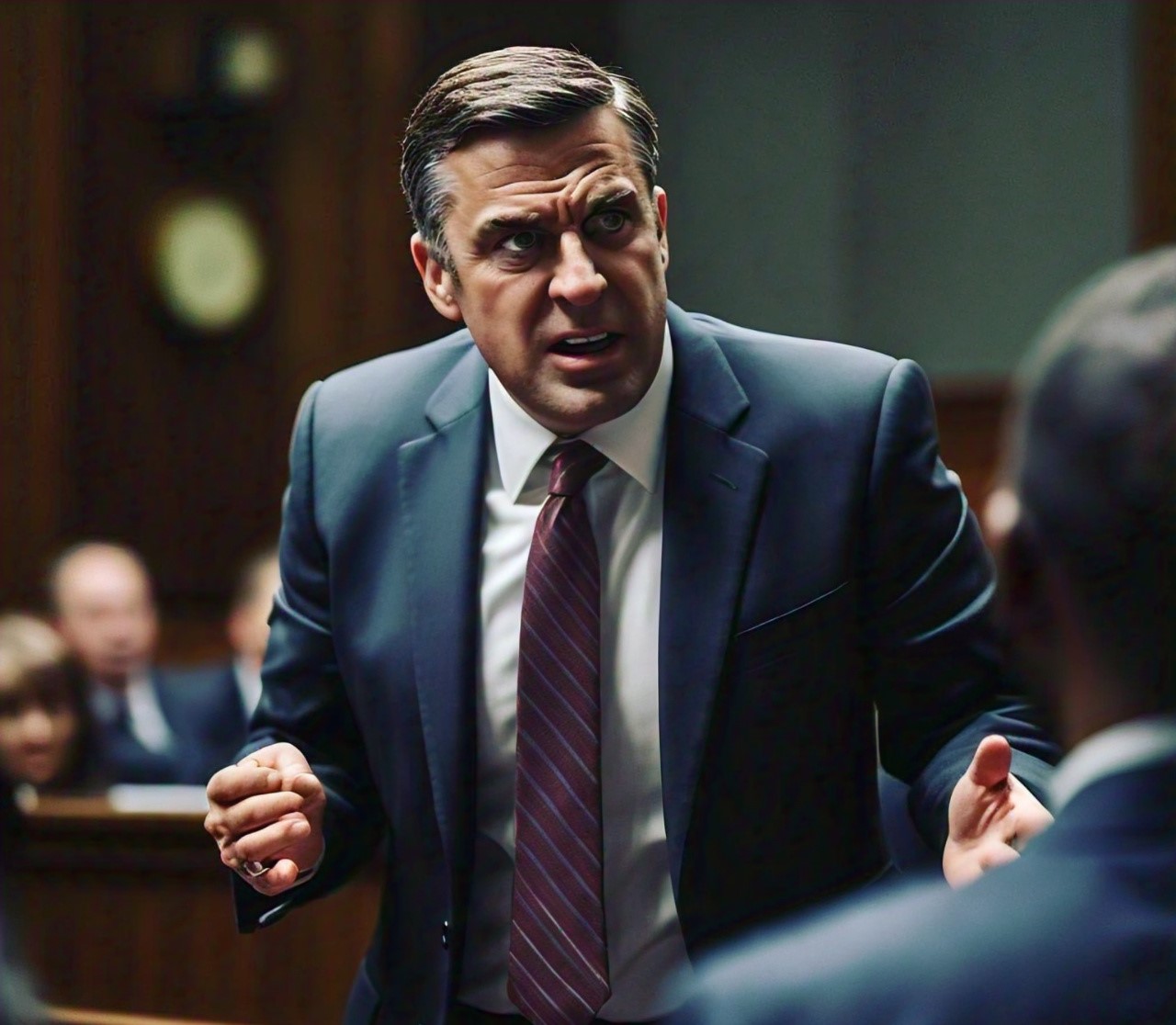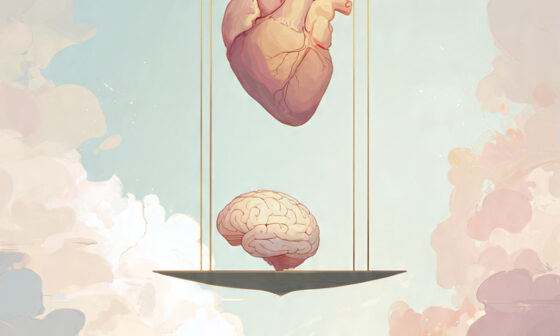After an amazing episode from the Daily Stoic Podcast by Ryan Holiday, I want to expand on the topic, Closing your eyes is not an excuse, so here we go again.
It is a seductive lie most people too often than not, tell themselves: If I do not look at it, if I act like I did not see it, I am not responsible for it. If we can keep our eyes shut, then our hands will be clean, and our hearts untouched, and we can go on with life guilt-free, but deep down, we know better, at least for the most of us. To deliberately ignore what is wrong is to quietly and other times openly accept it. In other words, to stay silent in the face of danger, injustice, or corruption is to participate in it.
And another thing is this; this lie is not new. Following the Daily Stoic podcast by Ryan Holiday, in Shakespeare’s Richard III, the character Brackenbury receives a clear order that will result in the murder of an innocent man, and what was his excuse? “I will not reason what is meant hereby, because I will be guiltless from the meaning.” But history and morality do not accept that kind of denial, and according to Ryan Holiday, neither does Stoicism.
From Seneca’s complicity with Nero, to world leaders who ignored Hitler’s intentions, to modern corporations turning blind eyes to toxic leadership and abuse, again, again and again we have seen the damages done when people look away and pretend not to know what happened, or what is happening. Whether it is out of fear, greed, laziness, or convenience, choosing to not get involved does not make us guiltless, even worse it makes us complicit, because closing your eyes is not an excuse. It never has been.

Willful Ignorance: The Comfortable Lie We Tell Ourselves
There is a reason people prefer not to ask hard questions. We think that if we do not know, we can not be blamed; if we do not acknowledge the implications, we can not be held accountable, but this willful ignorance is not innocence and even worse it is cowardice.
Again, in Richard III, Shakespeare captured this mindset perfectly in Brackenbury’s words: “I will not reason what is meant hereby, because I will be guiltless from the meaning.”
It is somehow a shocking and amazing honest expression of what many people still do today: Avoiding the uncomfortable truth. Whether it is the junior employee who does not ask why company numbers do not add up, or the citizen who ignores political corruption, the reasoning is the same: If I don’t understand it, then I am not part of it, but this is not neutrality; it is permission and worse it is dangerous.
Let us NOT allow room for such self-deception, let our path demand clarity, honesty, and moral responsibility, let us take that yoke of stepping up upon ourselves. If something feels wrong, we are not allowed to simply “not look too closely.” We are called to live with eyes open because pretending not to know is not the same as being blameless.
Warning Signs of Pretending Not to Know
History is filled with moments where the warning signs were clear yet ignored. People claimed they “didn’t know,” but in truth, they chose not to see.
Let us take a very typical example of this by looking at the life of Seneca, the Stoic philosopher who served as an advisor to Nero. Seneca taught him wisdom, restraint, and leadership but all the while, Nero grew more unstable, cruel, and power-hungry. Seneca saw this happening; he was not blind and yet, he stayed. He coached a madman and then acted shocked when violence followed; he pretended he did not know what was coming, but he did.
Or let us consider the world leaders before World War II who had access to Hitler’s Mein Kampf, a manifesto of his violent intentions. They read it; they dismissed it; they told themselves it was political theater, not a real threat. Their eyes were wide open but their actions said otherwise. And it is very very tempting to think this is all about other people in high places, but it is not just that; it happens every day, even to and with you. Say for instance a friend tells you who they really are, and you pretend not to notice, a company policy clearly harms someone, and you quietly comply, a pastor, boss, or teacher behaves unethically, and people look away. Why? Because seeing would mean acting, and acting takes courage. But to say, “I did not know,” when the signs were clear is not an excuse; it is an indictment, it is a permission, and to that I dare say that you are an accomplice.
Why We Don’t Want to Know: Fear, Greed, and Cowardice
Most of the time, people do not ignore the truth because they are too naive to see it. It is that, most of the time, we choose not to see it, and why is that? To that I say because seeing clearly often comes with consequences and many of us are not ready to face them.
When people ignore injustice or wrongdoing, it is not always because they are bad or heartless, it is like always because they are afraid: Afraid to speak up. Afraid to lose their job. Afraid to make enemies. Afraid of discomfort. Or they are motivated by something more subtle but very very equally corrosive, if not worse, greed. Staying silent might mean your paycheck continues, your promotion still comes, a reputation remains intact.
And sometimes it is laziness, and getting involved means getting uncomfortable; it means asking hard questions, confronting people in power, or stepping into situations where you might get hurt physically, professionally, or emotionally and so it feels to act like you did not see it or you do not know. Easier to nod politely, stay neutral, and let someone else deal with it.
And as Oprah Winfrey wisely said, “When people show you who they are, believe them.” But believing them means acknowledging the truth and here again, once we do that, we have a moral obligation to act, and that obligation is what so many of us are trying to avoid when we “do not want to know.” A life of justice offers no shelter for such cowardice and living with integrity means embracing the whole truth, no matter how costly or inconvenient.
So I tell you this, just as I say it to myself: If fear or greed keeps us from doing what is right, we have already compromised who we are.
You Are Not Innocent: Silence Is Complicity
And like I have said and you have read over and over and over again in this article, we like to believe that staying silent makes us neutral. That by not speaking, not acting, not looking too hard, we are somehow morally untouched, but the hard truth again is this: Silence is not neutrality. Silence is complicity. And if you are wondering how, walk with me, you have already come this far:
- When we see injustice and say nothing, we let it continue.
- When we hear lies and remain quiet, we allow them to take root and build up.
- When we witness harm and do not intervene, we make ourselves part of the harm.
Our silence becomes a shield for the guilty and a betrayal of the innocent.
And do not think that, this is just listing theories; this is the reality we live in:
- In workplaces where abuse was “known” but never reported.
- In communities where racism or corruption grew because “that is just the way things are.”
- In families where wrong behavior is overlooked to “keep the peace.”
Know this! And know peace! Or maybe not, every time we turn a blind eye, we help sustain what should be condemned.
I urge you, I beg you, I plead with you to have no patience for this kind of moral laziness. In my last article I wrote that Marcus Aurelius said that “often injustice lies in what you are not doing, not only in what you are doing.” That means doing nothing is not a form of safety; it is a form of guilt. To look away from evil or deceit does not make you clean; it stains you, even more, and worse still, it robs you of the peace that comes from courage and moral clarity. And over time, we carry the weight of those moments when we did not step up; when we knew better but did nothing. And eventually, unless your conscience is dead; that is a much heavier burden than speaking out ever would have been.
Stoicism by some people is often misunderstood as a passive philosophy, a school of thought that teaches us to endure hardship silently, to detach from emotion, and to simply avoid doing wrong, but that is just only part of the bigger picture. True Stoicism, as practiced by thinkers like Marcus Aurelius, demands far more than restraint; it calls for responsibility.
Marcus Aurelius once wrote, “If it is not right, do not do it; if it is not true, do not say it.” This has become one of the most repeated Stoic principles but there is a deeper layer we most times overlook. Somewhere else in his writings, Marcus Aurelius reminds us that “often injustice lies in what you are not doing, not only in what you are doing.” In other words, failing to act can be just as damaging as acting wrongly.
Silence in the face of dishonesty, inaction in the presence of suffering, looking the other way when something clearly is not right; these, too, are moral failures. And as Nassim Taleb clearly puts it: “If you see fraud and do not say fraud, you are a fraud.”
Continue Reading: Justice: It Is About What You Do and Don’t Do
The Courage to See and Act
A man that stands for justice does not close his eyes, a man that stands for justice does not hide behind ignorance or shrink back in fear. One of his essences is courage, not just in battle or hardship, but in the small, daily moments where truth demands a response.
It takes courage to say, “This is wrong.” It takes courage to step in when others stay silent. It takes courage to risk comfort, reputation, or livelihood in order to stand for what is right. And that is precisely what the Stoics believed was required of a good life: Not passive agreement with virtue, but active participation in it.
And as Ryan Holiday reflects, “A Stoic stands up! A Stoic steps in! A Stoic does not close their eyes! A Stoic calls a fraud a fraud when they see them, even if it hurts.”
Do not get me wrong; this is not about being reckless; it is not about confrontation for its own sake; it is about integrity. About aligning our actions with our values. About refusing to turn away when it matters most. The world does not need more people who protect themselves by pretending not to know; it needs more people who are willing to see clearly and act courageously. Even when it costs them.
Because in the end, the man of justice, courage and integrity knows: What is at stake is not just someone else’s well-being. It is his own soul!
Read Also: The Error In Asking Someone To Love You The Way You Are
Read Also: Things Worse Than Dying
Read Also: The Paradox of Hate and Bitterness
Conclusion
Turning a blind eye might feel safe in the moment, but it carries a quiet cost; a cost that compounds over time: When we refuse to see, we surrender our integrity. When we avoid action, we weaken our character. When we silence our conscience, we betray ourselves.
The stories and some of the examples I used are ancient, but yet they repeat in every generation, and we can clearly see it because I also used some examples that we see everyday in our spaces. From Seneca’s silence with Nero, to today’s corporate injustices, to everyday moments where we justify our inaction; it is all rooted in the same illusion, the same lie: That we can separate ourselves from wrongdoing by not getting involved, but the truth is, there is no such separation. Willful ignorance is a form of guilt! Willful ignorance is a form of indulgence! Willful ignorance is a form of permission! Willful ignorance is a form of promotion!
And so to live well, as the Stoics believed is to live courageously:
- It means refusing to be indifferent.
- It means holding the line when others compromise.
- It means opening our eyes even when what we see makes us uncomfortable.
Because only with open eyes can we act! Only by confronting what is wrong can we truly do what is right!
So let the message be clear: Closing your eyes is not an excuse! It never has been! It never will be!





